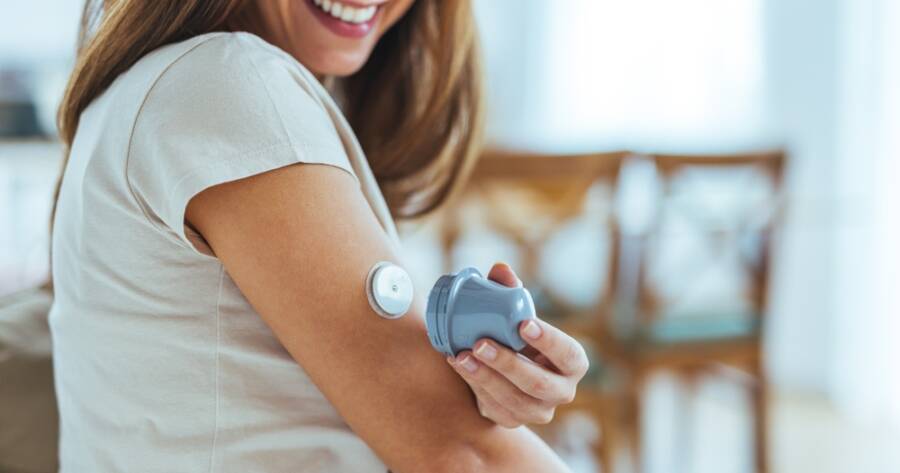Modern health devices are revolutionizing personal health management and healthcare system integration. Modern advancements in wearable technology provide real-time data, enhancing predictive analytics, remote monitoring, and healthcare accessibility. Artificial intelligence and the Internet of Medical Things contribute to proactive care while addressing challenges like data accuracy and cybersecurity. Understanding health devices is key to future healthcare success.
Understanding the Features of Modern Health Devices
In today’s rapidly evolving healthcare landscape, modern health devices play a crucial role in transforming how individuals manage their health. By integrating advanced technology, these devices help bridge the gap between traditional healthcare settings and real-time personal health monitoring.
This transformation is largely driven by the development of wearable technology, which combines consumer electronics with medical devices to provide users with real-time data and insights about their health. Wearable devices have moved beyond merely tracking daily steps and have advanced into sophisticated tools capable of monitoring various health parameters, including heart rhythms, glucose levels, and even predicting seizures, offering a proactive approach to health management.
Features and Benefits of Modern Wearables
Modern wearables come equipped with a range of features that make them invaluable tools in healthcare. They have successfully integrated artificial intelligence (AI) and machine learning algorithms to enhance predictive analytics, which plays a significant role in early disease detection and offers personalized healthcare solutions.
For example, devices like the Apple Watch and Dexcom G6 exemplify the life-saving potential of wearables by continuously monitoring health conditions, thus aiding in chronic disease management. These advancements enable continuous monitoring and encourage patients to engage more proactively with their health. Additionally, by leveraging continuous data streams, both patients and healthcare professionals can monitor vital signs more efficiently, reducing the need for frequent office visits and potentially lowering healthcare costs.
Integration with Healthcare Systems
Beyond personal monitoring, modern health devices are also designed to integrate seamlessly with healthcare systems. This is particularly evident in the realm of telemedicine, where wearable devices contribute to remote patient monitoring and continuous health tracking. By allowing healthcare providers to access real-time patient data remotely, these devices enhance healthcare accessibility, especially for patients managing chronic conditions. Furthermore, through the use of interconnected devices and digital platforms, known as the Internet of Medical Things (IoMT), healthcare facilities can ensure interoperability and standardization, which improves patient outcomes by reducing errors and inefficiencies.
Challenges and Considerations
Despite the promising features and benefits, modern health devices face several challenges that must be addressed for wider adoption. Ensuring data accuracy and maintaining regulatory compliance are key obstacles, as the reliability of health monitoring data is paramount for effective patient care. Cybersecurity also remains a high priority, with healthcare organizations tasked with safeguarding patient data from sophisticated threats.
Compliance with regulations such as HIPAA and GDPR is critical, as these standards protect electronic health information. Additionally, cost and accessibility continue to be concerns for many patients who might benefit from these advancements but face financial or technological barriers to accessing them.
The Role of AI and Predictive Analytics
Artificial intelligence is a pivotal element in the evolution of modern health devices, offering significant improvements in diagnostic accuracy and operational efficiency. Machine learning algorithms facilitate early disease detection and help in personalizing treatment plans, ultimately reducing operational costs by optimizing resources.
These technologies promise a future where wearables can predict potential health issues before they arise, through their integration in predictive wearables and smart clothing. Predictive analytics is crucial for developing individualized health solutions and improving patient outcomes.
Why You Should Learn More About Health Monitoring Devices Today
Health monitoring devices are an integral part of modern healthcare, offering substantial benefits in managing and monitoring personal health. With advancements in wearable technology, AI, and the Internet of Medical Things, these devices not only promote preventive care but also enhance patient engagement and operational efficiency within healthcare facilities.
As technology continues to evolve, understanding the role of these devices in delivering personal and systemic healthcare improvements is essential. Embracing innovations in health monitoring will likely lead to improved patient care, better health outcomes, and a more efficient healthcare system overall.
Sources
Wearable Technology Transforming Healthcare
Internet of Medical Things Enhancing Patient Monitoring
